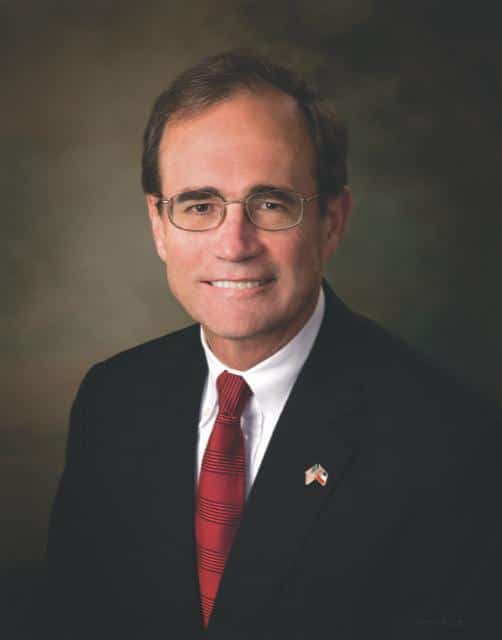Secretary of State Delbert Hosemann took part recently in a top-secret briefing in Washington regarding voting systems being controlled at the federal level.
Hosemann said that it is important for each state to continue handling their own voting procedures and said he is currently working with Mississippi agencies to ensure that they remain secure from cyber threats.
“We are working on cybersecurity for this state, and each individual agency has done its own firewalls,” Secretary Hosemann said.
While Secretary Hosemann had to sign a non-disclosure agreement to take part in the event, he said that there was a healthy discourse among the various Secretaries of State and the Federal government about making a critical infrastructure designation that the federal government would have control over each of the states’ voting systems. The designation was proposed during the Obama administration and was then enacted in January of 2017.
“The U.S. Department of Homeland Security’s sudden decision to designate state election systems as ‘critical infrastructure’ is overreaching and unnecessary.,” Hosemann said. “The U.S. Constitution delegates responsibility for conducting elections to the states. The diversity of current state election systems is one reason these systems have remained secure. Despite widespread concern about cyber attacks (and repeated attempts), Mississippi’s Statewide Elections Management System was not breached. In fact, the Department of Homeland Security commended Mississippi for its current cybersecurity protocols. No citizen’s vote was compromised in Mississippi.”
Hosemann said he believes that voting systems should be decided by each state.
“Whatever the state is, the state needs to control its own voting processes and I would put ours up against just about anybody’s, with the way we run ours,” Hosemann said.
However, the Department of Homeland Security said that the election infrastructure designation will be given only to the states that request it.
“Given the vital role elections play in this country, it is clear that certain systems and assets of election infrastructure meet the definition of critical infrastructure, in fact, and in law,” said the Department of Homeland Security Secretary Jeh Johnson. “The designation of election infrastructure as critical infrastructure subsector does mean that election infrastructure becomes a priority within the National Infrastructure Protection Plan,” Johnson said. “It also enables this Department to prioritize our cybersecurity assistance to state and local election officials, but only for those who request it. Further, the designation makes clear both domestically and internationally that election infrastructure enjoys all the benefits and protections of critical infrastructure that the U.S. government has to offer. Finally, a designation makes it easier for the federal government to have full and frank discussions with key stakeholders regarding sensitive vulnerability information.”
Johnson continued, saying the Department of Homeland Security provides to a range of private and public sector entities.
“By “election infrastructure,” we mean storage facilities, polling places, and centralized vote tabulations locations used to support the election process, and information and communications technology to include voter registration databases, voting machines, and other systems to manage the election process and report and display results on behalf of state and local governments,” Johnson said.




